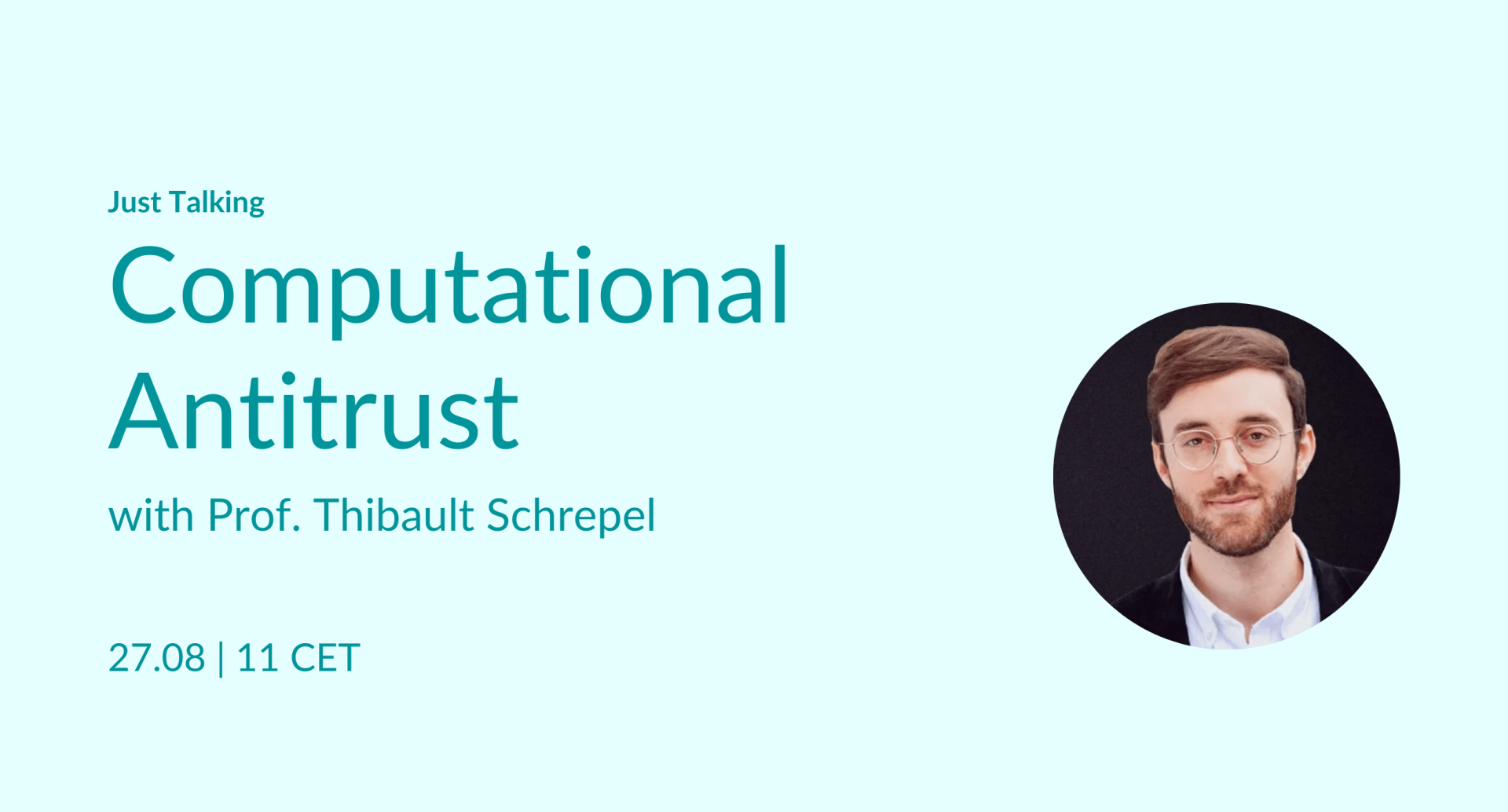ABOUT
What is the current shape of Competition Law and Policy in the Digital Era? This session shall explore the contours of Computational Law & Computational antitrust. Computational antitrust is as such a specialist field of computational law that purports to improve antitrust analysis and procedures by assistance of legal informatics. The implementation of computational methods is essential to improve the overall functioning of antitrust agencies. This is particularly important in light of the recent cases against the Big Tech. This conversation also aims to cover the current efforts by regulators when assessing Big Tech companies in their relevant markets and analyzing data-intensive markets. We also intend to jump back to some classic examples of tech-based antitrust case law to reconsider if regulators and enforcers use lessons from the past in shaping their reactions to contemporary challenges in digital markets.
SPEAKERS
Prof. Dr. Thibault Schrepel is an Associate Professor of Law at VU Amsterdam, and a Faculty Affiliate at Stanford University’s CodeX Center where he has created the “Computational Antitrust” project that brings together over 55 antitrust agencies (see our website). He holds research and teaching positions at the University Paris 1 Panthéon-Sorbonne and Sciences Po Paris, he is a Harvard University’s Berkman Klein Center alumnus, a member of the French Superior Audiovisual Council’s scientific board, and an expert appointed to the World Economic Forum. These last couple of years, he has been focusing most of his research on blockchain antitrust (see here). He has written the world’s most downloaded antitrust articles of 2018 (“The Blockchain Antitrust Paradox”), 2019 (“Collusion by Blockchain and Smart Contracts”), and 2020 (“Blockchain Code as Antitrust”). Last but not least, he is passionate about nineties rock music, free jazz, Seinfeld, and B movies.
SHARE
Read More


Watch Our Episodes





